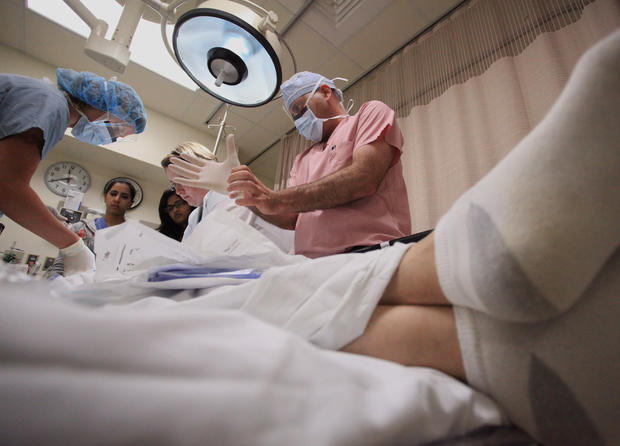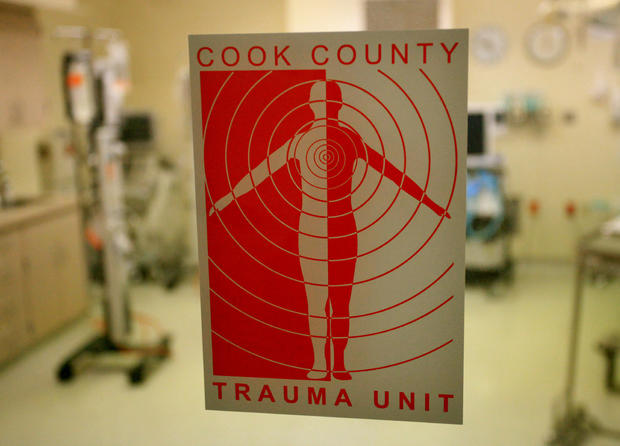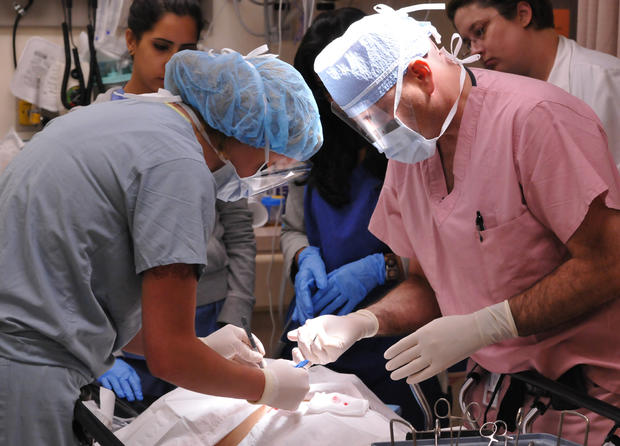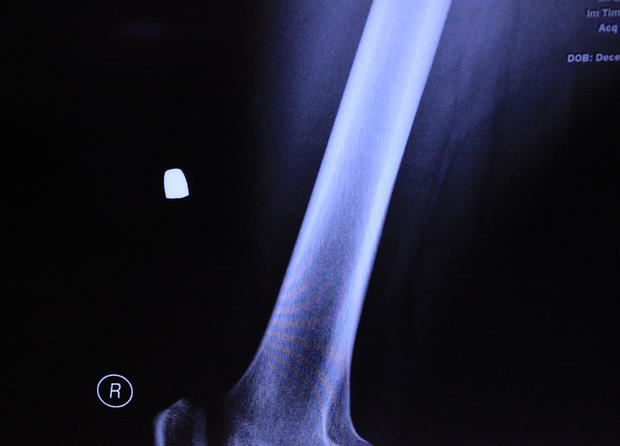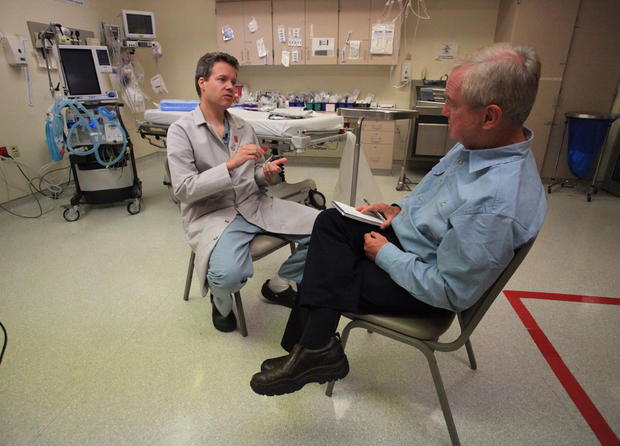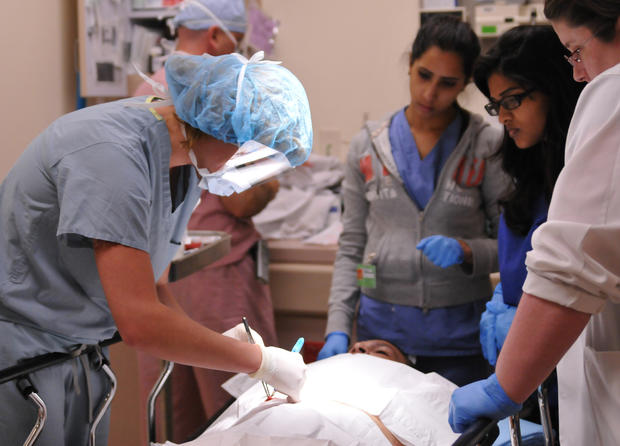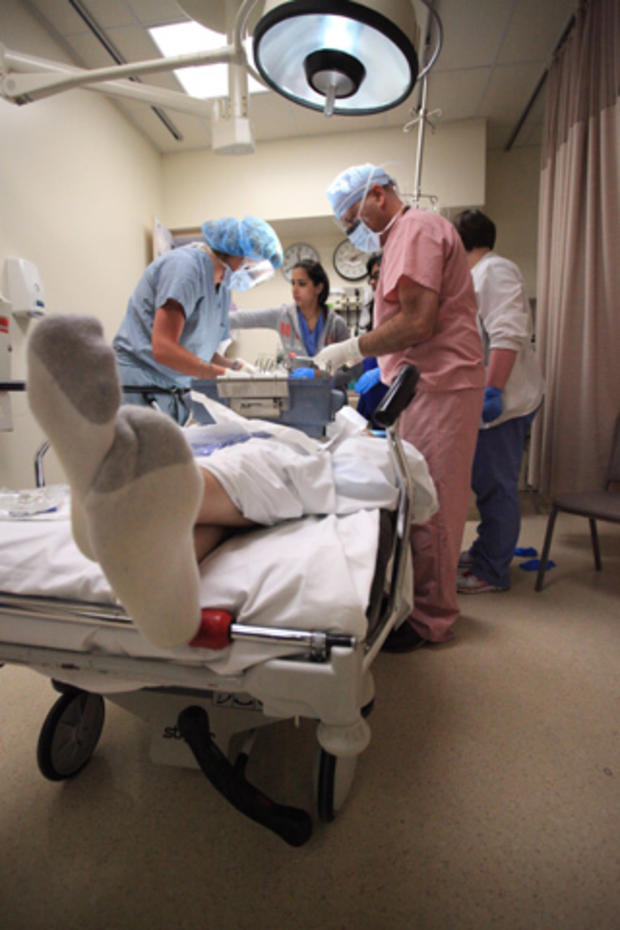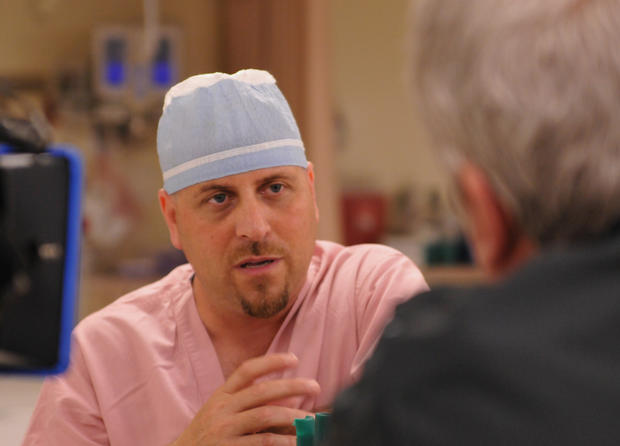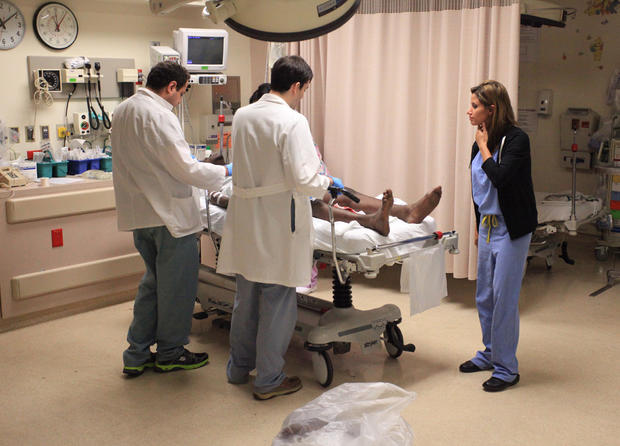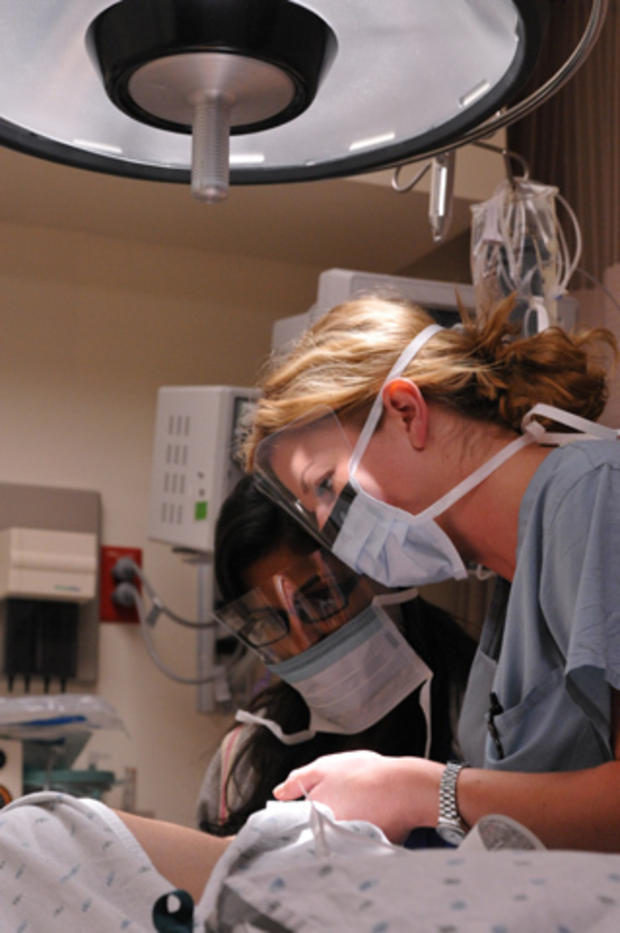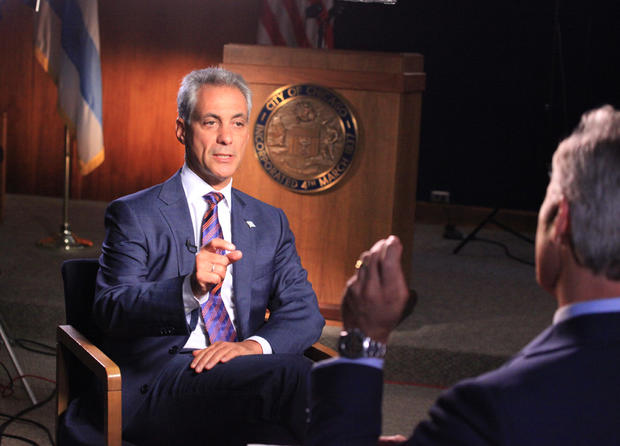Inside Chicago trauma unit
Violent crime in America has fallen for six straight years, with homicides last year down nearly 6 percent. But in Chicago, there have been 275 homicides this year, most of them gang-related. The nation's third-largest city had 17 shootings this past weekend alone.
In the first six months of this year, Chicago had 22 percent more murders that New York - a city with 5.5 million more people.
Read and watch Dean Reynolds' CBS Evening News report from the trauma center on the front lines of Chicago's gang war
One current gang member who asked not to be identified showed us his wounds. "I was shot three times in 1997," he said. "I was shot once in 2002. I was shot 12 times in 2012. ... To me it's just a steady flow of violence. I mean, I can't tell if it's worse or if it's not worse."
"I've seen more people probably this year who have been caught in the crossfire, or you know, caught a stray bullet and that certainly is alarming," Starr told Dean Reynolds. He said he's angry at the violence, adding, "When I see the children - I have two children of my own - it certainly makes it very personal for me."
Among the victims last week: 7-year old Heaven Sutton, shot to death selling candy outside her house; and 10-year old Kitanna Peterson, shot as she played in the spray from a fire hydrant. She was treated at the trauma center last week. "They just happen to be in the wrong place at the wrong time," Starr said. "They're collateral damage to some of the violence that is happening out on the streets."
Among veteran gang members treated at Stroger there's a nonchalance that's almost breathtaking.
"Unfortunately sometimes you see human nature at its very worst and, you know, we're there to pick up the pieces," Starr said.
Conceived in the late 1960s, the Cook County Trauma Center at Stroger Hospital was the first such unit in the world to provide a continuum of care for serious trauma patients, from pre-hospital and resuscitation phases, through operative and post-operative or post-injury care, continuing through to rehabilitation.
Among his duties, Dr. Dennis is an Attending Trauma Surgeon, Director of Student Rotations and Clinical Assistant Professor of Emergency Medicine.
Among the tactics: Closing liquor stores in communities "that are a magnet and a cancer on a community, for gangs and narcotics"; boarding up or tearing down abandoned buildings used by gangs for their operations; and holding police commanders and district leaders accountable for results.
"You have be very aggressive in making sure that the gangbangers know that the police force and the community run those streets, they don't," Emanuel said.
